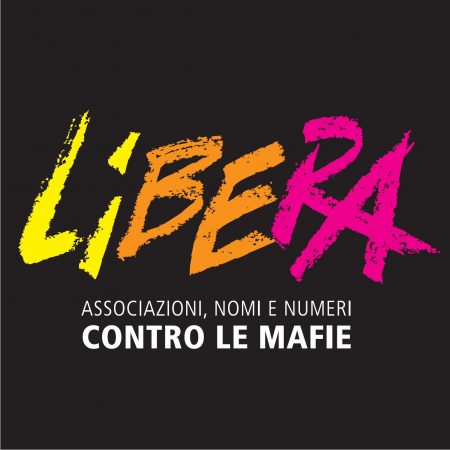Across Italy, social and agricultural co-ops are bringing back prosperity and dignity to territories with a history of mafia control.
Coldiretti, Italy’s largest agriculture industry association, estimates that Italian organised crime generated a turnover of €21.8bn from agriculture in 2017, a 30% increase on the previous year. According to the report, 98 of Italy’s 102 provinces showed signs of illegal activity in the agriculture sector. The association argues that the sector could generate much more wealth without the interference of mafia gangs.
A common setback is the mafia using intimidation techniques to take over people’s lands and then applying for EU subsidies for agriculture.
In February, Ján Kuciak, a Slovak journalist who was investigating the links with Italian and Slovak politicians used by the Calabrian mafia to obtain EU subsidies, was killed. The incident brought the problem to the attention of the European Anti-Fraud Office, which is currently investigating the alleged abuse of funds in Slovakia.
To tackle agro-mafia groups, Italian law now requires that anyone claiming EU subsidies on land have an anti-mafia certification, which is issued by local authorities after checking the national database and is valid for six months. The same certification is required from businesses to access EU grants or bid for contracts awarded by local authorities.
Co-operatives have been at the forefront of the anti-mafia movement in Italy since 1995, mainly under the umbrella of Libera Terra (Free Land), a co-op consortium. Comprising ten co-operatives, the group currently employs 140 people.

Libera Terra’s story goes back to 1996, when Luigi Ciotti, a Catholic priest, founder and president of the organisation, led a campaign to raise one million signatures for the adoption of a law on the social use of the properties confiscated by the mafia. The petition led to a bill that was submitted to parliament. The same year Law 109 on the social re-use of confiscated assets was passed, laying the basis for the creation of the anti-mafia co-ops. The law enables judges to seize the properties of a person investigated for being a member of a mafia-type association if they suspect that these properties are the fruit of illicit activities. 
Furthermore, third party organisations such as social enterprises, co-ops and local or regional authorities can use the confiscated property, providing this benefits the local community. Over 20,000 properties were confiscated from the mafia in 2017. The legislation is now expanding to include the lands and properties of those found guilty of terrorist activities.
The land on which the co-ops are based is owned by the state and used by them for free under renewable lease contracts. The enterprises are not-for-profit organisations that function on co-operative principles.
The first Libera Terra co-operative – Cooperativa Placido Rizzotto – was founded in 2001 in San Giuseppe Jato, Sicily, a few miles from Corleone, the capital town of the Cosa Nostra, the Sicilian mafia. The project was initially met with scepticism by people living in communities under the mafia’s influence. Some protested and displayed placards with “the mafia hires, the state doesn’t”. Their attitude changed over time once the co-ops started generating employment.
The Libera Terra co-operatives are social co-ops with 40% of workers from disadvantaged groups. Each of them functions as a multi-stakeholder co-op, led by a members’ assembly and a board of directors. The co-ops include worker members (58-65%), volunteer members (12-13%), members who invest in the co-operative (20%) and special members, those who aspire to be worker members.
The ten Libera Terra co-operatives operate in four regions of southern Italy – Sicily, Calabria, Apulia and Campania. They manage around 1,400 hectares of agricultural land, all of of which is organically farmed.
As well as making a difference in agriculture, Libera Terra has built a network of 1,200 associations, groups and schools committed to building a culture of lawfulness. The organisation also works with schools to raise awareness of the anti-mafia movement. Every year Association Libera runs training and educational programmes, which thousands of people attend.
In addition to the agri businesses, Libera Terra co-operatives manage a winery, two agri-tourism businesses in Sicily and a dairy in Campania. In 2002, the first Libera Terra product, the Libera Terra organic pasta, was marketed. Many other products followed.
In 2008 a consortium Libera Terra co-operatives and other partners was formed – the Consortium Libera Terra Mediterraneo. The group transforms raw produce, such as durum wheat, vegetables, tomatoes, oranges, olives or grapes, to higher added-value food and beverage products like pasta, preserves, marmalades or wines. It then markets these products through several distribution channels.
“The objective of the Libera Terra project is to demonstrate that the allocation of a property confiscated to a project with a social mission creates concrete benefits not only for those who manage it, but for the whole territory,” says Valentina Fiore, chief executive of the Libera Terra Consortium.
The Consortium reported sales of €7.5m in 2016, an increase of 12% on the previous year. Its income comes from food production (67%), wine production (24%), tourism (1%) and donations (8%).
The initiative aims to promote sustainable agriculture but has an ethical and political dimension.
“We believe that respect for mother earth and the environment in general is the first form of possible legality,” says Ms Fiore. She pointed out that every step of the production chain was constantly monitored to ensure products of excellent quality.
A study conducted by Legacoopsociali, the national trade body for social co-ops and Cooperare con Libera Terra, an agency subsidiary of Libera Terra, found that in 65% of cases the assets confiscated, which were leased to the co-ops, were in a poor condition. However, the over 27 social co-ops surveyed proved they had managed the assets in a way that resulted in a 10% increase in production value and a 21% increase in the number of employees.
Michele Mosca, co-operative researcher and author of EURICSE’s report explained how the law created the favourable environment for social co-ops to flourish. Once the assets are confiscated, the municipality must lease them to non-profit organisations in a transparent process.
“Workers protest when they have a link to the old owner but, in general, we do not record a strong protest. There is the disagreement with the huge time to reuse a confiscated asset in general because the aim of the law is to give back to the community the stolen goods.”
Mr Mosca is an expert member of the Committee Don Peppe Diana, an association formed in 2006 in the memory of Giuseppe Diana. He was an Italian priest who fought against the mafia and was assassinated in 1994 after testifying in an investigation.
The Italian approach to using confiscated lands for social purposes has attracted the interest of the UN, which published various case studies on it.
The Albanian government is also looking at learning from the Italian experience and is currently working with the Committee Don Peppe Diana to develop a similar model.
- Read more from our recent series on co-operatives and the Sustainable Development Goals here.